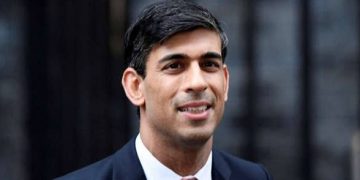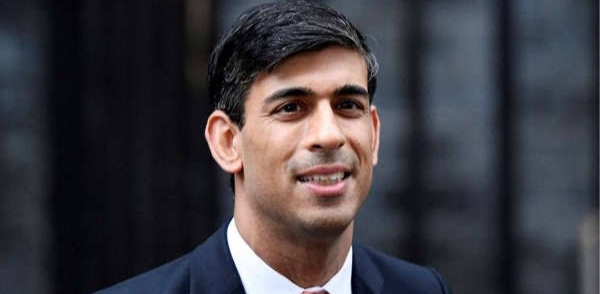Rishi Sunak has secured the backing of Conservative Party MPs to become the United Kingdom’s new prime minister.
The 42-year-old’s rival, Penny Mordaunt, withdrew on Monday from the internal Tory leadership contest to succeed Liz Truss, who resigned last week after just six largely chaotic weeks in office.
Truss’s predecessor, Boris Johnson, considered making a comeback but withdrew from the race on Sunday evening.
Sunak’s win, less than two months after losing out to Truss in the previous contest, means that he is set to make history on Tuesday when he formally becomes prime minister, the first non-white person to hold the post.
In his first public remarks as the new leader, Sunak said: “It is the greatest privilege of my life to be able to serve the party I love and give back to the country I owe so much to.”
Born in the southern English city of Southampton to Hindu parents of Indian descent, Sunak is one of the UK’s wealthiest politicians. Prior to entering parliament for the first time in 2015, Sunak worked for Goldman Sachs, an investment bank, and hedge funds.
His wife, Akshata Murty, who he met while studying at Stanford University, is the daughter of one of India’s richest IT entrepreneurs.
Sunak became widely known to the public when he was named by Johnson as chancellor of the Exchequer in 2020. He immediately had to face the impact of the COVID-19 pandemic as the first significant test of his tenure at the helm of the finance ministry.
He became popular for the financial support packages to businesses and workers hit by coronavirus lockdowns, including furloughs, loans for ailing companies and vouchers for restaurant visits – essentially a carte blanche from Johnson.
“Sunak was operating under a prime minister who was keen to spend money, particularly on infrastructure projects designed to deliver the levelling up agenda and more generally because Johnson made spending promises without always considering how to pay for them,” Neil Carter, professor of politics at the University of York, said.
“But certain actions backfired the ‘eat out to help out’ initiative may have saved the restaurant sector but almost certainly contributed to the devastating second COVID wave in autumn 2020,” he said.
Johnson was seemingly inclined to let Sunak do the work arguably to a fault, Stephen Elstub, reader in British politics, told Al Jazeera.
“During the pandemic, when the government was making regular televised briefings, the chancellor announced the government handouts while the prime minister was telling us how many people had died and that we all needed to stay at home,” he said.
With the end of all lockdown restrictions this year, however, Sunak changed his approach towards government debt – just as people began grappling with massive rises in the cost of living.
“His significant increases in corporation tax and national insurance were attacked from across the political spectrum for damaging business, and because national insurance is a tax on workers, so it falls disproportionately on younger people,” Carter said.
Sunak, who was deeply critical of his predecessor’s unfunded tax cuts that plunged the British economy into chaos, campaigned on a pledge that he was the right person to manage the economy.
Critics, however, see it otherwise and will surely say Sunak has no mandate to govern.
Analysts say Sunak’s lack of mandate means he will have to produce tangible results immediately.
Tom Caygill, lecturer in politics at Nottingham Trent University, said there was a number of issues “waiting for him on his desk”.
“Firstly there is still the fallout from Truss’ mini-budget,” . “The financial markets are looking for stability and confidence. They are also expecting some fiscal restraint too. The latter might be the harder of two things that the markets want as it will likely require spending cuts or tax rises, neither of which will be popular.
Despite the opposition’s persistent calls for a general election, Sunak on Monday appeared to rule out a snap vote.
“The United Kingdom is a great country, but there is no doubt we face a profound economic challenge,” he said, promising to bring “stability and unity” at a time of economic turmoil.
Indeed, analysts say Sunak will need to display pragmatism to unite his party and provide much-needed stability in a country that has seen more than its fair share of political drama and economic turmoil in recent years. Otherwise, his tenure could also be limited.



































